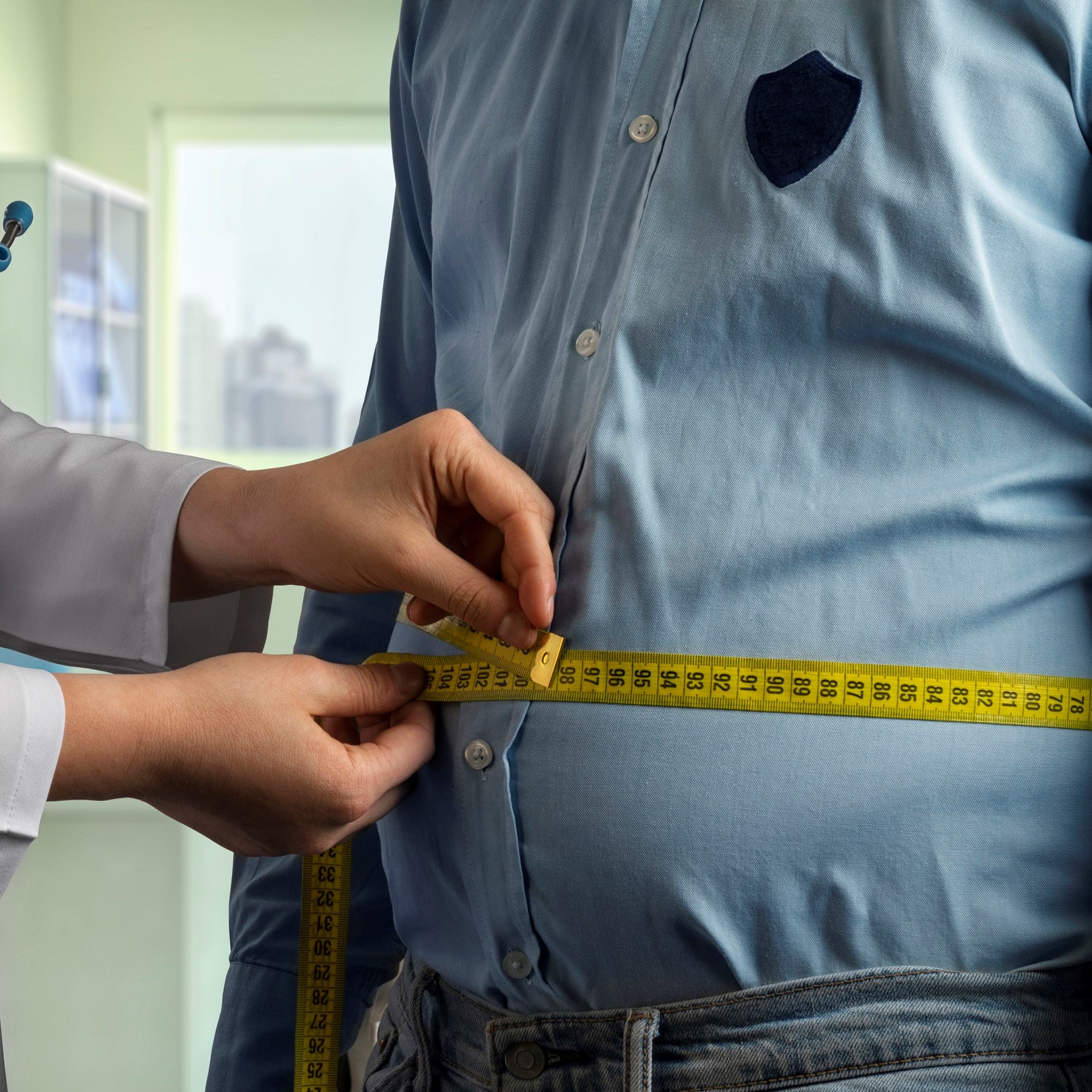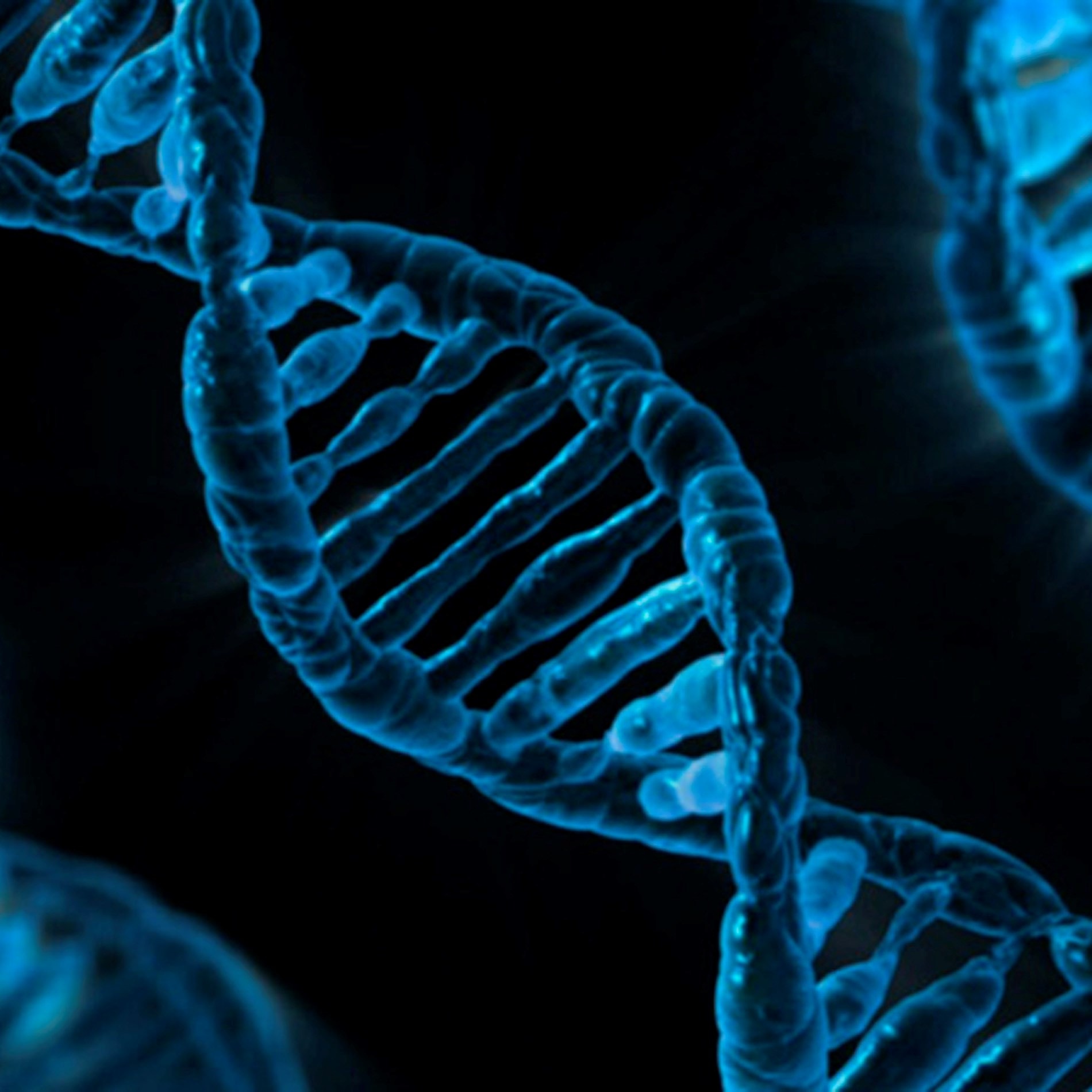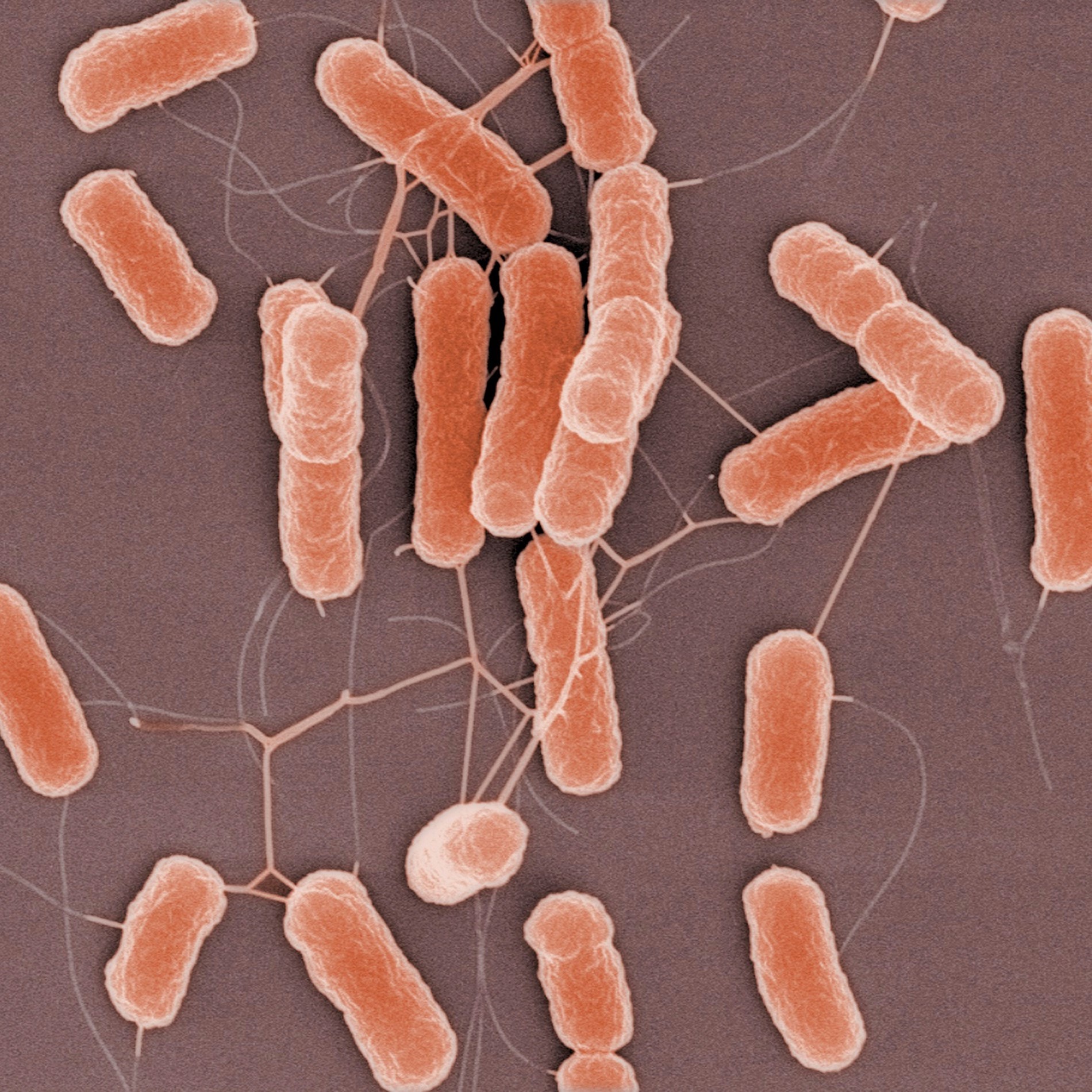Probiotics for Obesity
Worldwide obesity has nearly tripled since 1975. The growing obesity epidemic, generally attributed to our modern lifestyle with increased calories and limited exercise, is estimated to have affected over 650 million people in 20161.
It's a generally agreed principle that obesity is caused by a combination of poor diet, lack of exercise, and an unhealthy lifestyle, in combination with our genetic make-up. We can now add gut bacteria into the mix as we know more than ever about how these tiny microbes impact our wider health. Read on to find out about probiotics for obesity:
- Gut health and obesity
- Childhood obesity
- Obesity and bad breath
- Which are the best probiotics for obesity?
- Prebiotics and obesity
- How does diet affect obesity?
- Key takeaway
The proportion to which each of these factors impacts our risk of obesity is still hotly debated. Nevertheless, the results of much research can still help us to understand the complexities of obesity, as well as the relationship that probiotics for obesity might have in helping support a healthy gut.
Gut health and obesity
Increasing evidence in recent years has indicated a strong link between intestinal gut bacteria and health. Scientists are now focusing on the connection between the diversity of this gut flora and an increased risk of weight related conditions. It appears that people with fewer bacterial species in their gut are more likely to experience mild inflammation in the digestive tract and in the entire body, increasing the risk of complications such as diabetes and cardiovascular disease. We also know that lack of variety in gut bacteria can be a sign of dysbiosis.

A 2013 research study, carried out by the international consortium MetaHIT, has identified a significant link between the diversity of gut bacteria with an increased risk of medical complications in people who are overweight, such as cardiovascular disease and diabetes2. Studies such as this, examining the gut bacteria of 169 obese Danes and 123 non-obese Danes, suggest that it is not only food choices and weight gain that increase the risk of medical complications in overweight people.
It’s clear that obesity and gut health may have some links – a cycle that poses a considerable health threat.
We would love to see further research in this area. In fact, there have indeed been other studies suggesting that some of the bacteria in our gut help fight weight gain and others may lead to an increase in weight. Researchers believe that the presence of a certain type of bacteria, called Bacteroides, tend to be present in much higher concentrations in slim people3.
Childhood obesity
It is well known that many and varied factors affecting a baby before birth, even at the earliest stages of pregnancy, can have an impact on a child's health and may even affect their state of health much later life. In recent years, research has revealed how our earliest moments, such as the method of birth, may impact development of gut bacteria and put children at greater risk of various health conditions.
We have also known for a long time that taking antibiotics affects the gut microbiome. Antibiotics not only remove the ‘bad’ bacteria that is causing an infection, but they also wipe out the ‘good’ bacteria. The gut microbiome then needs to be restocked, which is where probiotic supplements make their mark.
For further information on antibiotics, read about taking probiotics alongside antibiotics on our Probiotics Learning Lab website.
What is now becoming apparent is that for babies who repeatedly must take antibiotics during their early years, their risk of developing weight related conditions in childhood is increased. A large American study reviewed health records of more than 64,500 children. They found that the children who had had four or more courses of broad-spectrum antibiotics by the time they were 24 months old were at a 10% higher risk of being obese at the age of five than children who had been given fewer drugs4.
A more recent study suggested that antibiotic treatment during the first 6 months of life may be linked to increased weight in later life5.
It is important to make clear that these studies we’ve highlighted show an association between antibiotics and childhood obesity. Taking antibiotics does not directly cause obesity. It is always vital to follow a doctor’s recommendations with taking antibiotics – they are being given for a reason.
Obesity and bad breath
Could an imbalance in your gut flora be contributing to bad breath and weight gain? Well, according to some research, the characteristics of a person’s breath may reveal how susceptible they are to gaining weight.

Analysing the breath of 792 participants revealed that people who had high levels of hydrogen and methane gas were more likely to have an increased BMI (body mass index) and body fat percentage6. The breath test results were classified into one of four different groups: those who had a normal breath content, those who exhaled higher concentrations of either methane or hydrogen, and the last group which had increased levels of both gases in their breath. This last group also tended to have higher body fat percentages and a higher BMI, associated with being overweight or obese.
Researchers found that a person will exhale more hydrogen and methane gas if a microorganism known as Methanobrevibacter smithii is plentiful in their digestive systems. M. smithii is the predominant methane-producing bacteria in the human digestive tract, and researchers think that too much M.smithii could lead to increased body fat and overall weight gain, contributing factors in obesity.
Which are the best probiotics for obesity?
As already explained, there is a myriad of factors in both the development and reversal of weight gain and associated health conditions.
Interestingly, a 2018 study7 revealed that probiotics, when taken during pregnancy and breastfeeding, may help to reduce the risk of weight gain during childhood. The clinical trial, suggests that probiotic supplementation of Lactobacillus rhamnosus LGG® and Bifidobacterium lactis BB-12® may help to favourably modify genes related to weight – this was the case in both the mothers and their children.
This suggests that probiotics taken by a mother during pregnancy could possibly have a direct effect on the genes of the baby. An incredibly exciting concept that should see more research in coming years.
Healthcare practitioners can find out more about these strains on our Probiotics Database: L. rhamnosus LGG® and B. lactis BB-12®.
We know that people with less diversity of bacteria in their gut tend to have a greater likelihood of inflammatory diseases and a higher BMI. Therefore, it makes sense that introducing a variety of bacteria into the gut, from a quality probiotic supplement, could help with weight loss.
There are other strains in the lactobacillus genus have been found to be helpful in reducing body fat. These include Lactobacillus acidophilus LA-05 and Lactobacillus casei DN001. One study used a combination of L. acidophilus LA-05, B. lactis BB-12®, and L. casei DN001 added to yoghurt, over an 8-week period. It was found that these individuals had significantly reduced levels of leptin, a hormone that regulates fat storage, when the probiotic yoghurt was taken in conjunction with a low calorie diet11.
Healthcare practitioners can read more about two of the strains used in this research over on our Probiotics Database: Bifidobacterium lactis BB-12® and Lactobacillus acidophilus LA-05.

Prebiotics for obesity
Research is beginning to show that the benefits of prebiotics are becoming as broad as the probiotic bacteria that they help to sustain. Prebiotics, which feed the body's good bacteria, could help with dysbiosis, a common condition amongst overweight and obese people.
It seems that the change in gut microbes brought about after consuming prebiotics is much greater than a simple change in levels of the Bifidobacterium genus, as was once thought8. The good news is that prebiotics can help balance blood sugar levels and lessen inflammation9, both of which are hallmarks of obesity.
A recent study has suggested that prebiotics, which have already been found to help to moderate appetite and reduce overall food consumption in adults, may also have this effect in obese children10. The results indicated that, after four months, the appetites of those children who had been given prebiotics had been reduced, and so comparably they ate less food than the other group as they felt full more quickly.
Many probiotic supplements contain prebiotics (often labelled as FOS), which is a simple way of adding these helpful fibres into your diet. Certain foods, like onions, leeks, garlic, and Jerusalem artichokes are natural sources of prebiotics– giving you plenty of options to feed the good bacteria in your gut.
How does diet affect obesity?
We are what we eat, and our gut is no exception. The type of fat we regularly eat impacts the type of bacteria that live in our gut. And these resulting changes to gut microflora could have a knock-on effect to our metabolism and weight.
Healthy fats from fish oils tend to result in a greater abundance of Akkermansia muciniphila species of bacteria. This is good news as this probiotic is associated with staying a healthy weight and being able to get energy from carbohydrate foods.
Currently, there are no probiotic supplements containing Akkermansia muciniphila on the market, so I’d suggest increasing levels of prebiotic fibre either from dietary sources, or from a supplement. These fibres encourage the proliferation of Akkermansia municiphila along with many other beneficial strains of bacteria in the gut, thus exposing us to their potential 'slimming' properties.
Interestingly, research shows that it is not only what you eat, but also when you eat it that matters to the microbiome. Eating when the body should be sleeping, and is not programmed to be digesting, appears to negatively impact on our gut flora. That means shunning those midnight snacks if you want to keep your gut bacteria healthy!
The fact that people with chronically disturbed day/night cycles due to frequent long haul flights or shift work have a tendency to develop obesity and other metabolic complications, is now known to be at least partly due to the loss of bacterial circadian rhythms, as well as the loss of the individuals own circadian and hormonal rhythms.
It seems that helping your probiotic colonies to flourish through sensible food choices and probiotic supplementation could be even more important for those people who do a lot of international air travel or work night shifts, in order to normalise the microbiome.
Key takeaway
As with most health issues it is difficult and not always appropriate to prove a causal link as there are so many other variables in diet and lifestyle. Also, with human studies it is tricky and often unethical to try to isolate one variable. However, as this article explains, there is strong, growing evidence to suggest that gut bacteria play a vital role in obesity and weight management.
You may also wish to read related articles:
Gut bacteria, obesity & mental health
Probiotics & PCOS
You may also wish to read this article over on our Probiotics Learning Lab site: Could probiotics help with weight loss?
References
- World Health Organisation (2016) https://www.who.int/news-room/fact-sheets/detail/obesity-and-overweight
- Emmanuelle Le Chatelier, Trine Nielson, Junjie Qin et al. Richness of human gut microbiome correlates with metabolic markers. Nature, 2013.
- Gordon, J. et al (2013) Gut Microbiota from Twins Discordant for Obesity Modulate Metabolism in Mice. Science. 6, 341; 6150
- L. Charles Bailey, Christopher B. Forrest, Peixin Zhang, Thomas M. Richards, Alice Livshits, Patricia A. DeRusso. Association of Antibiotics in Infancy With Early Childhood Obesity. JAMA Pediatrics, 2014; DOI: 10.1001/jamapediatrics.2014.1539
- Mbakwa, C. A. et al. (2016) Early life antibiotic exposure and weight development in children. The Journal of Pediatrics Nakamura, F. et al. (2016) Effect of fragmented Lactobacillus amylovorus CP1563 on lipid metabolism in overweight and mildly obese individuals: a randomised controlled trial. Microbial Ecology in Health and Disease.
- Mathur, R et al (2013)"Methane and Hydrogen Positivity on Breath Test is Associated with Greater Body Mass Index and Body Fat," Accepted for inclusion in the April 2013 issue of Journal of Clinical Endocrinology & Metabolism.
- Natalie, M., et all, Gut microbiota and metabolic disorders: how prebiotic can work?; British Journal of Nutrition, Vol. 109, S2, Jan 2013 pp. S81 - S85.
- Aguilera X et al., (2022) Probiotics and Gut Microbiota in Obesity: Myths and Realities of a New Health Revolution, Journal of Personalised Medicine, 12(8), 1282.
- Vahamiko, S. et al. (2018) The impact of probiotic supplementation during pregnancy on DNA methylation of obesity-related genes in mothers and their children. European Journal of Nutrition
- M. Hume et al.(2015), ‘Prebiotic Fiber Consumption Decreases Energy Intake in Overweight and Obese Children,’ The FASEB Journal, vol. 29:no. 1 Supplement597.3
- Zarrati M et al., (2014) Effects of probiotic yogurt on fat distribution and gene expression of proinflammatory factors in peripheral blood mononuclear cells in overweight and obese people with or without weight-loss diet. Journal of the American College of Nutrition, 33(6):417-25.
- Baba, Y.; Saito, Y.; Kadowaki, M.; Azuma, N.; Tsuge, D. Effect of Continuous Ingestion of Bifidobacteria and Inulin on Reducing Body Fat: A Randomized, Double-Blind, Placebo-Controlled, Parallel-Group Comparison Study. Nutrients 2023, 15, 5025. https://doi.org/10.3390/nu15245025
Popular Articles
View all Weight Management articles-
Weight Management09 Jan 2024
-
Weight Management13 Feb 2024


